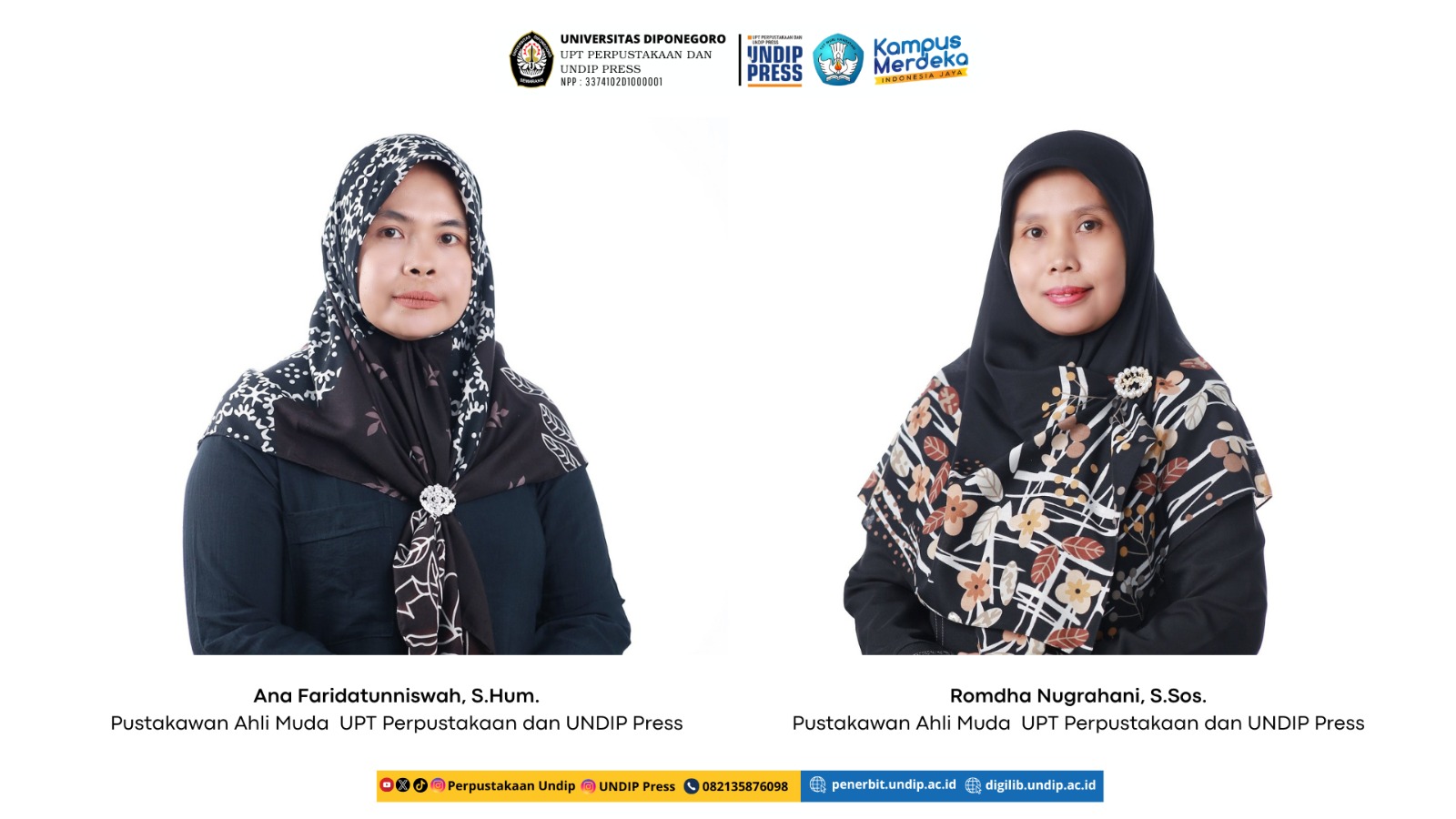Librarians at Universitas Diponegoro (UNDIP) play a vital frontline role in advancing literacy both on campus and in the broader community. Their work goes far beyond managing book collections, encompassing digital literacy education, research support, and programming that aligns with the university’s broader mission and vision.
Ana Faridatunniswah, S.Hum., a mid-level librarian at UNDIP Library and UNDIP Press, emphasized in an interview on Friday that today’s librarians must go beyond traditional responsibilities and adopt digital literacy initiatives to provide information and literacy to students.
“Librarians are responsible for identifying, organizing, and packaging information into electronic formats that connect users directly to digital resources. We assist students by introducing tools like reference managers, e-books, and e-journals to help them access the reference materials they need,” Ana explained.
“Beyond mastering information technology, they must understand the fundamentals of library science — data management, archiving, and classification. Strong communication skills, including proficiency in English, are also essential to elevate the professionalism of librarians,” she said.
Romdha Nugrahani, S.Sos., another mid-level librarian at UNDIP Library and UNDIP Press, echoed Ana’s sentiments, noting that librarians face new challenges amid the ongoing digital transformation. “The librarian’s struggle with technology involves adapting to new software, e-book integration, and utilizing sophisticated online databases,” she said.
Romdha highlighted, “The services available at the UNDIP Library varied, including AI-based tools, Grammarly, Turnitin, and a Final Project Clinic — a support service for students conducting research that provides personalized guidance and feedback.”
“Being a librarian is a profession that demands specialized knowledge and skills. Students who aspire to become librarians must be committed to a lifelong learning approach. With the rapid development of information and communication technology, we are expected to keep pace with it. Librarians also play an educational role, including countering the spread of hoaxes and misinformation in their communities. For students, digital literacy is no longer optional — it is essential to avoid falling victim to misleading or false information,” Romdha explained.

